Accredited InvestorsAltcoinAnatoli UnitskyAnti-Money Laundering (AML) In CryptoAPIArbitrageArtCoin TokenArticle DirectoryASICAuction Terminology GlossaryBasics of Stock Market InvestingBear MarketBest Crypto Payment Provider In the WorldBitcoinBlockchainBlockchain ConfirmationBlockchain Consensus MechanismBlockchain ForkBlockchain GlossaryBored Ape Yacht ClubBuild a Business That OutperformsBull MarketBuying SkyWay SharesByzantine Fault Tolerance (BFT) ExplainedCasascius CoinCentral Bank Digital Currency (CBDC)Centralized Crypto ExchangeCoinCoinsetCold WalletCollateralCommodity Futures Trading Commission (CFTC)Cross-Chain TechnologyCRUCrypto ExchangeCrypto GlossaryCrypto JokesCrypto Terms to KnowCrypto TickerCryptocurrencyCryptographyCryptojackingCryptounit BlockchainCryptounit GlossaryCryptounit ProgramdApp (Decentralized Application)Dead CoinDecentralized Exchange (DEX)Decentralized Finance (DeFi)Difference Between Bitcoin and EthereumDifferent Ways of Investing MoneyDigital CurrencyDistributed LedgerDo Your Own Research (DYOR)Dollar Cost Averaging (DCA)Dow Jones Industrial Average (DJIA)EncryptionERC-20ERC-721EthereumEvoScentFear Of Missing Out (FOMO)Fear, Uncertainty and Doubt (FUD)Fiat MoneyFNT Fintech CompanyGenesis BlockGlobal Unit PayGlossary of Banking TermsGlossary of Business TermsGlossary of Financial TermsHalvingHODLHot WalletHow Do I Start InvestingHow Rich is Satoshi Nakamoto?How to Create a BlockchainHow to Find Private InvestorsHow to Get Into FintechHow to Program Smart ContractsI Am Thrilled to Be a Part of This Global ProjectInitial Coin Offering (ICO)Initial Public Offering (IPO)Initial Token Offering (ITO)Innovation Basalt TechnologyInnovative Transportation TechnologiesInternational Bank Account Number (IBAN)Investing in Gold Mining StocksInvesting in Gold MiningJagerJoy of Missing Out (JOMO)Know Your Customer (KYC)LedgerLiquidity in CryptocurrencyMaker and Taker Fees in Crypto TradingMarket Capitalization (Market Cap)Meme CoinMetal Credit CardMetaMaskMillenials Now Have Access to Generational WealthMy Best Investment EverNew Digital EvolutionNFT GlossaryOff-Chain TransactionsOn-Chain TransactionsOpen Edition NFTPeer-to-Peer (P2P)Personal Loan GlossaryProbably the Best STO on the MarketProof of Stake (PoS)Real Estate Glossary of TermsReal Estate Investing GlossaryRebase TokenSecurities and Exchange Commission (SEC)Security Token ExchangesSecurity Token Offering (STO)Soulbound Decentralized Identities for Security TokensSoulbound ID Launch by Stobox Proves a SuccessSoulbound TokensStoboxStock Market GlossaryTestimonialsTether Platform and Token (USDT)UnitEx ExchangeUnitsky String TechnologiesUNTBUSDUValidatorWe Started Investing When We Were 25What are Blue Chip NFT?What are Blue Chip Stocks?What are Crypto Assets?What are Crypto Smart Contracts?What are CryptoPunks NFT?What are Digital Assets?What are Digital Collectibles?What are Gas Fees?What are Gas Wars?What are Hashmasks?What are Non Fungible Tokens?What are Non-Sufficient Funds (NSF)?What are Soulbound Tokens (SBT)?What are Stablecoins in Crypto?What are Transactions Per Second (TPS)?What are Utility NFTs?What are Utility Tokens?What Does Burning Crypto Mean?What Does Diamond Hands Mean?What Does Paper Hands Mean?What Does To The Moon Mean?What Does WAGMI Mean?What Happened to Satoshi Nakamoto?What is a 51% Attack?What is a Baby Boomer?What is a Backlink?What is a Banner?What is a Barcode?What is a Bid-Ask Spread in Crypto?What is a Block in Blockchain?What is a Block Reward?What is a Blockchain Address?What is a Blockchain Node?What is a Blockchain Oracle?What is a Blog?What is a Bond?What is a Bot?What is a Broker?What is a Business Accelerator?What is a Cash Cow?What is a Commercial Bank?What is a Commodity?What is a Con?What is a Credit?What is a Credit Limit?What is a Credit Rating?What is a Crypto Airdrop?What is a Crypto Bridge?What is a Crypto Scam?What is a Crypto Token?What is a Crypto Wallet?What is a Crypto Whale?What is a Crypto Winter?What is a Cryptocurrency Public Ledger?What is a Cryptocurrency Roadmap?What is a DAO?What is a Dark Pool?What is a Day Trader?What is a Dead Cat Bounce?What is a Default?What is a Derivative?What is a Digital Credit Card?What is a Fiscal Quarter?What is a Fungible Token?What is a Governance Token?What is a Grace Period?What is a Hard Fork?What is a Hot Wallet?What is a Hybrid Blockchain?What is a Hybrid PoW/PoS?What is a Joint Account?What is a Market Cap?What is a Merkle Tree in Blockchain?What is a Mining Farm?What is a Nonce? What is a PFP NFT?What is a POS System?What is a Prepaid Card?What is a Private Blockchain?What is a Private Key?What is a Public Blockchain?What is a Public Key?What is a Reserve Currency?What is a Ring Signature?What is a Routing Number?What is a Rug Pull in Crypto?What is a Safe Deposit Box?What is a Satoshi?What is a Security Token?What is a Seed Phrase?What is a Shitcoin?What is a Sidechain?What is a Soft Fork?What is a Spot Market?What is a State Bank?What is a SWIFT Code?What is a Tax Identification Number (TIN)?What is a Time Deposit?What is a Transaction Account?What is a Variable Interest Rate?What is a Virtual Assistant (VA)?What is a Virtual Card?What is a Virtual Currency?What is a Visa Card?What is a Whitelist in Crypto?What is a Whitepaper?What is Accounts Payable (AP)?What is AMA in Crypto?What is Amortization?What is an Accrual?What is an ACH Transfer?What is an Actuary?What is an Addendum?What is an Algorithm?What is an Angel Investor?What is an Annuity?What is an Asset?What is an ATM?What is an Atomic Swap?What is an Audit?What is an Avatar?What is an EIN?What is an Embargo?What is an Entrepreneur?What is an IDO (Initial Dex Offering)?What is an Interest Rate?What is an Internet cookie?What is an Investment Bank?What is an NFT Drop?What is an NFT Floor Price?What is an Ommer Block?What is an Orphan Block?What is an Outstanding Check?What is an Overdraft?What is Artificial Intelligence (AI)?What is B2B (Business-to-Business)?What is B2G (Business-to-Government)?What is Bartering?What is Bitcoin Dominance?What is Bitcoin Pizza Day?What is Blockchain Immutability?What is Blockchain Used For?What is BRICS?What is Business-to-Consumer (B2C)?What is C2C (Customer to Customer)?What is Capitalism?What is Catfishing?What is CFD Trading?What is Check Kiting?What is Cloud Mining?What is Communism?What is Content Marketing?What is Decentralization in Blockchain?What is DeFi in Crypto?What is Delisting?What is Depreciation?What is Digital Marketing?What is Diversification?What is Double Spending?What is Dumb Money?What is Dumping?What is Earnings Per Share (EPS)?What is Economics?What is Email Marketing?What is Equity?What is Etherscan?What is Fintech?What is Foreign currency?What is Forex?What is Fundamental Analysis (FA)?What is GameFi?What is Generative Art NFT?What is Gwei?What is Hard Currency?What is Hash Rate?What is Hashing in Blockchain?What is Inflation?What is Initial Game Offering (IGO)?What is Interest?What is Interest Income?What is Mainnet?What is Mastercard?What is Metaverse in Crypto?What is Mining in Cryptocurrency?What is Minting NFT?What is Mobile Banking?What is Money Laundering?What is NFT Alpha?What is NFT Metadata?What is NFT Rarity?What is NGMI Meaning?What is Nominal Interest Rate?What is Online Banking?What is Open-End Credit?What is OpenSea NFT Marketplace?What is Personal Identification Number (PIN)?What is Play-to-Earn?What is Polygon?What is Proof of Authority (PoA)?What is Proof of Work (PoW)?What is Public Key Cryptography?What is Pump and Dump?What is Quantum Computing?What is Refinancing?What is Retail Banking?What is Ripple?What is Sharding?What is Slippage in Crypto?What is Smart Money?What is Solvency?What is Soulbound ID?What is SSL?What is Staking in Cryptocurrency?What is Technical Analysis (TA)?What is Testnet?What is the Ask Price?What is the Better Business Bureau (BBB)?What is the Bid Price?What is the Dark Web?What is the InterPlanetary File System (IPFS)?What is the Gold Standard?What is the Lightning Network?What is the Prime Rate?What is the Sandbox?What is the Secondary Market?What is the World Bank?What is Tier 1 Capital?What is Tokenomics?What is TRC-20?What is Universal Banking?What is Unspent Transaction Output (UTXO)?What is Usury?What is Volatility in Crypto?What is Wash Trading?What is Web3?What is Whisper?What is XRP?What is Zero-Knowledge Proof (ZKP)?Who is Beeple?Who is Satoshi Nakamoto?Who is Vitalik Buterin?Why Tokenization is a Safe HavenWhy You Should Try Your Hand at Trading
How Rich is Satoshi Nakamoto?
- Home
- Crypto Glossary
- Who is Satoshi Nakamoto?
- How Rich is Satoshi Nakamoto?
Satoshi Nakamoto released the white paper for Bitcoin in 2008 and began mining the first Bitcoins in January of 2009. In the early days of Bitcoin, it was possible for anyone to mine the cryptocurrency using a standard computer. As a result, it is believed that Satoshi Nakamoto was able to accumulate a significant amount of Bitcoin in the early days of the cryptocurrency.
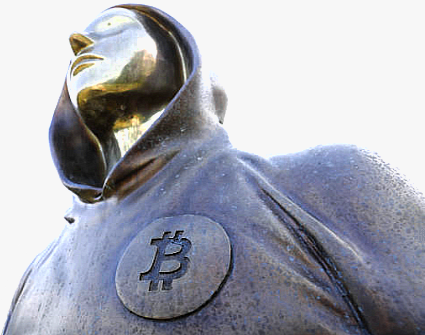
How Rich is Satoshi Nakamoto?
As a consequence of Bitcoin's tremendous expansion, Satoshi has reached a place among the top 100 wealthiest individuals on earth. Nevertheless, it appears that Satoshi has never disposed of any of their Bitcoin, and his current state of being alive is uncertain.
It is estimated that Satoshi Nakamoto owns around 1 million Bitcoins. However, it is important to note that these estimates are based on assumptions and it is not possible to know the exact amount of Bitcoins owned by Satoshi Nakamoto.
Satoshi Nakamoto’s Net Worth in 2023
Experts have furnished reasonably accurate calculations of the amount of BTC held by Satoshi, thus making it possible to estimate their net worth. As of January 2023, Satoshi Nakamoto's net worth is estimated to be around $18 billion. When Bitcoin reached its highest value in November 2021, Satoshi Nakamoto's net worth was approximately $76 billion.
Assuming that Satoshi Nakamoto's net worth is $18 billion, they would be ranked 86th on Forbes' real-time billionaires list. They would also likely be the wealthiest person in the crypto world, surpassing Binance CEO Changpeng "CZ" Zhao, whose net worth is estimated at $12.3 billion by the Bloomberg Billionaires Index.
It is probable that Satoshi holds the largest amount of Bitcoin in the world. The following is an illustration of the amount of Bitcoin held by some prominent "whales":
- Satoshi Nakamoto: 1.1 million BTC
- Grayscale Bitcoin Trust: 631,000 BTC
- Binance: 521,000 BTC
- Coinbase: 483,000 BTC
- Bitfinex: 353,000 BTC
- MicroStrategy: 132,500 BTC
*Data as of January 7, 2023
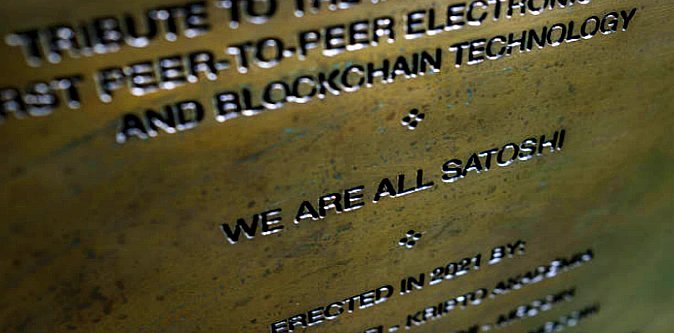
What is the Bitcoin Address of Satoshi Nakamoto?
Each of the block rewards earned by Satoshi were sent to different addresses, resulting in over 20,000 addresses holding Satoshi's Bitcoin. The most well-known address is the one that received the reward from Bitcoin's first block (genesis block). Interestingly, the 50 BTC rewarded for the genesis block are unspendable.
The Genesis address (the very first address bitcoin was sent to) is: 1A1zP1eP5QGefi2DMPTfTL5SLmv7DivfNa
From time to time, Bitcoin users send BTC to the "genesis address" as a way to pay homage to Satoshi. To date, a total of around 18.57 BTC has been sent to this address, in addition to the 50 BTC from the genesis block reward.
Another address of significance belonging to Satoshi is the one used to make the first-ever Bitcoin transaction between two users. On January 12, 2009, Satoshi sent 10 BTC to Hal Finney, a software developer who was one of the first people to adopt Bitcoin.
But keep in mind that Satoshi had at least 22,000 Bitcoin addresses, as they utilized a new address for each mining reward to maintain anonymity.
Analysts in the crypto market keep an eye on the Bitcoin blockchain to check if any transactions are being sent from wallets that were active during the "Satoshi era." However, no BTC transactions have occurred since Satoshi's departure from the Bitcoin project that can be attributed to him with certainty.
Critics of Bitcoin
Bitcoin has drawn a considerable amount of criticism for various reasons. It has been criticized for its association with illegal activities, its large environmental impact due to the excessive energy consumption required for its creation, and its significant price volatility. Many economists who have won the Nobel Prize have likened Bitcoin to the Dutch tulip mania of the 17th century, describing it as an economic bubble. Additionally, some have raised concerns about the cryptocurrency potentially being a Ponzi scheme.
On the other hand, Bitcoin has also received a lot of support from various industries, investors and experts. Bitcoin has been praised for its ability to act as a store of value and a hedge against inflation, its decentralized nature and the fact that it is not controlled by any government or financial institution.
Bitcoin has also been recognized for its potential to provide financial inclusion to the unbanked population and for its role in promoting a cashless society. Furthermore, many experts in the field of cryptocurrency argue that the environmental impact of Bitcoin can be mitigated with the use of renewable energy and the implementation of more efficient technologies.
Related Articles
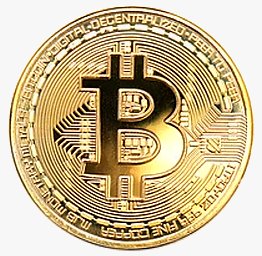
Bitcoin
The digital currency known as Bitcoin is operated through a distributed computer network. However, in a larger sense, the term "Bitcoin" is frequently used to refer to a number of other concepts.
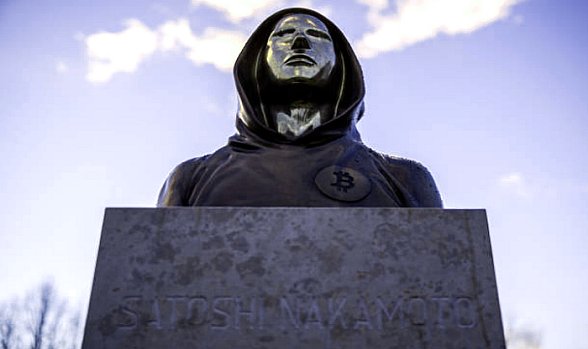
What Happened to Satoshi Nakamoto
What happened to Satoshi Nakamoto, what led to the disappearance of Nakamoto, and what does that mean for bitcoin’s future?
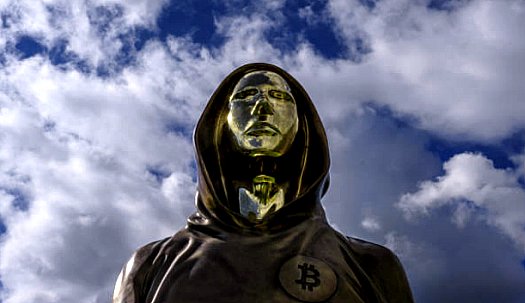
Who is Satoshi Nakamoto?
The name Satoshi Nakamoto is believed to be a reference to the Japanese term for "intelligent," "clever," or "wise," and it is possible that the pseudonym was chosen...